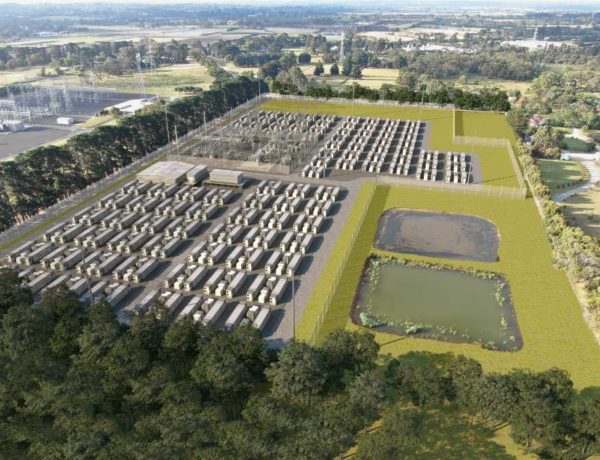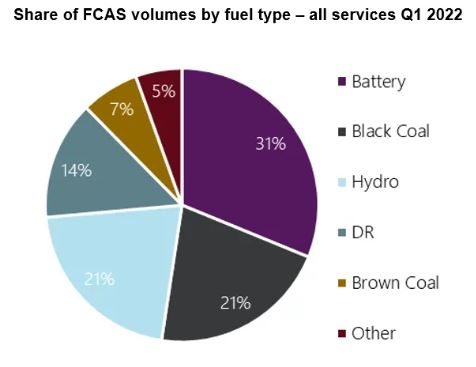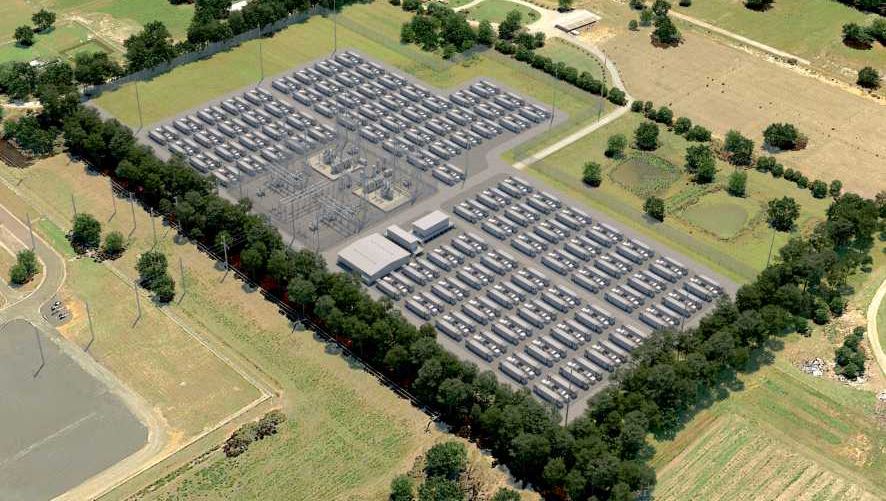Australian renewables developer Maoneng is proposing to build a standalone 240 MWp/480 MWh Battery Energy Storage System (BESS) on Victoria’s Mornington Peninsula where the company said it will serve to promote the reliability and security of the electricity grid.
Sydney-based Maoneng said on Thursday the Australian Energy Market Operator (AEMO) had provided assessment approval to connect the standalone $190 million Mornington Battery Energy Storage System (BESS) to AusNet’s existing Tyabb substation in the southern part of the Victorian grid.
The Mornington battery received development approval earlier this year and Maoneng said it is now on track for completion in early 2024. The project is expected to generate up to 160 full-time equivalent jobs during its 12-month construction phase.
Maoneng co-founder and chief executive officer Morris Zhou said the grid connection assessment approval was an important step forward for the project.
“The Mornington BESS is really coming together. We now have the assessment approval as well as the development approval for an asset that will support the Victorian government’s objective of improving regional electricity reliability,” he said.
“This project is progressing at a time when demand for renewable energy and associated storage capacity is increasing, and we are seeing a lot more interest in battery projects both in Australia and internationally – they are vital to the clean energy transition.”

Image: Maoneng
The Mornington battery will be located on a 6.7-hectare site adjacent to AusNet’s existing Tyabb substation, about 70 kilometres east of Melbourne on the Mornington Peninsula, where Maoneng said it will cater to fluctuations in demand sparked by seasonal tourism.
Maoneng said the standalone BESS will draw and store energy from the grid during off-peak periods and dispatch energy to the grid during peak periods, generating power for the equivalent of 40,000 average Australian homes.
Zhou said the Mornington BESS would be strategically important for the electricity grid in the region.
“A vital part of the Victorian government’s Renewable Energy Action Plan is the integration of energy storage. Our facility directly supports this strategy and will play a key role in local grid stability,” he said.
The Mornington BESS announcement follows the revelation by AEMO that in Q1 2022 grid-scale batteries were for the first time the largest providers of Frequency Control Ancillary Service (FCAS) in the National Electricity Market (NEM).

In its latest Quarterly Energy Dynamics (QED) report, AEMO said grid-scale batteries were the largest providers by fuel/technology type of FCAS in the first quarter, reaching a combined share of 31% across the NEM’s eight FCAS markets.
Other relatively new sources, including demand response and Virtual Power Plants (VPP), have also increased volumes at the expense of conventional generation providers.
Estimated battery revenues from energy market participation also increased to their highest quarterly level since Q1 2019.
AEMO’s latest Generation Information file shows that alongside 487MW of utility-scale solar and 210MW of wind capacity moving to the committed phase, there are 26.79GW of proposed battery storage systems, a significant increase on the 611MW of existing capacity in the NEM.
The Mornington BESS is part of Maoneng’s growing pipeline of operational and planned renewable energy projects. Its portfolio includes nearly 300MW of generation power from the Sunraysia Solar Farm in New South Wales (NSW) and the Mugga Lane Solar Park in the Australian Capital Territory. The company is also in the process of building more than 1.8GWh of utility-scale battery energy storage projects in Victoria, NSW and South Australia, including the recently announced Merriwa Energy Hub.
To be built in the Hunter region of NSW, the Merriwa project would be one of the largest renewable energy hubs in the country, comprising a 550MW solar farm and a 400MW/1,600MWh battery energy storage facility.
This content is protected by copyright and may not be reused. If you want to cooperate with us and would like to reuse some of our content, please contact: editors@pv-magazine.com.









By submitting this form you agree to pv magazine using your data for the purposes of publishing your comment.
Your personal data will only be disclosed or otherwise transmitted to third parties for the purposes of spam filtering or if this is necessary for technical maintenance of the website. Any other transfer to third parties will not take place unless this is justified on the basis of applicable data protection regulations or if pv magazine is legally obliged to do so.
You may revoke this consent at any time with effect for the future, in which case your personal data will be deleted immediately. Otherwise, your data will be deleted if pv magazine has processed your request or the purpose of data storage is fulfilled.
Further information on data privacy can be found in our Data Protection Policy.